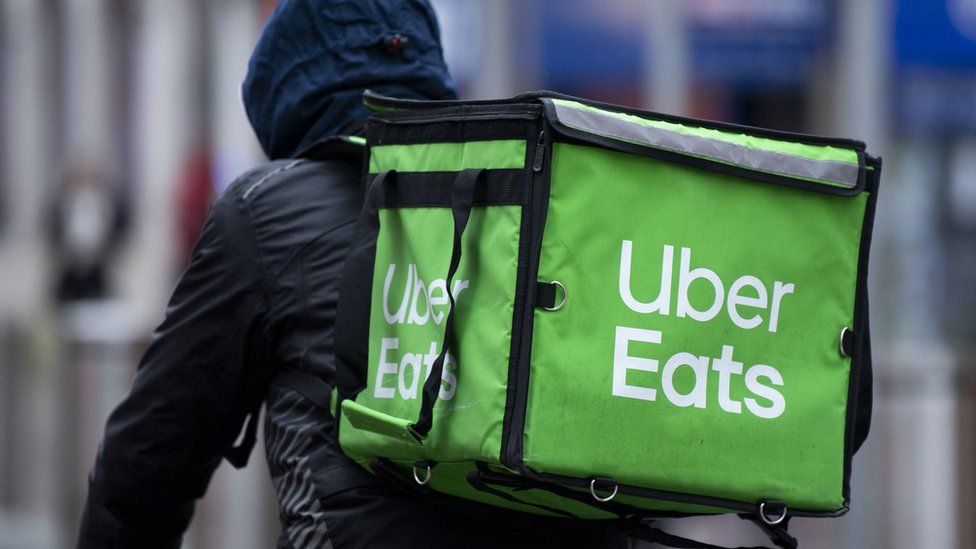Technology
The Silicon Mountain Project Partners With Walkbout Caribbean To Help And Empower MSME Tourism Entrepreneurs

Businessuite News24
Jamaica Market Entry via Acquisition: Uber Eats’ Potential Playbook
“An Uber Eats acquisition would be a seismic shift for Jamaica’s food delivery market—creating opportunities for founders and consumers, but risking local economic leakage, higher merchant fees, and reduced entrepreneurial diversity.”
Business Insights
Jamaica, Is Uber Eats Coming Soon?
Local platforms aren’t just incumbents—they’re innovators with diversified offerings, profitability, and brand loyalty. If they move fast—improving UX, expanding services, and forging local partnerships—they can front run Uber Eats, closing the window on foreign intrusion.
Businessuite Women
Data Mavericks of the Caribbean: Raquel Seville & Dataffluent’s Visionary Rise
Businessuite News24
Businessuite Special Report P4 | Homegrown Disruption: InterMetroONE & Walkbout.com Position Jamaica’s Answer to Uber–Airbnb
Now is the time for SMEs, associations, and government to align—ensuring that if Uber and Airbnb ever arrive together, Jamaica’s own ecosystem remains vibrant and in control.
Businessuite News24
Businessuite Special Report P3 | Uber x Airbnb: A Strategic Alliance That Could Redefine Jamaica’s Travel Industry – But At What Cost?
The future of Jamaican tourism lies in its ability to integrate into global digital ecosystems without sacrificing local livelihoods. The time for public–private dialogue is now.
-

 Businessuite Women2 weeks ago
Businessuite Women2 weeks agoData Mavericks of the Caribbean: Raquel Seville & Dataffluent’s Visionary Rise
-

 Businessuite News244 weeks ago
Businessuite News244 weeks agoIndia’s 10-Minute Delivery Boom: A Blueprint for Disruption—and a Wake-Up Call for Caribbean Courier Companies
-

 Businessuite News24 International4 weeks ago
Businessuite News24 International4 weeks agoIndia’s 10-Minute Delivery Boom: Reshaping Retail, Logistics, and Urban Spaces
-

 Businessuite News243 weeks ago
Businessuite News243 weeks agoBusinessuite Special Report P4 | Homegrown Disruption: InterMetroONE & Walkbout.com Position Jamaica’s Answer to Uber–Airbnb
-

 Corporate Feature4 weeks ago
Corporate Feature4 weeks agoNot Just Vanity Metrics: A Digital Leader Focused on What Matters
-

 Businessuite News245 days ago
Businessuite News245 days agoJamaica Records US$2.4B in Earnings From 2.3 Million Visitor Arrivals Since Start of 2025
-

 Business Insights2 weeks ago
Business Insights2 weeks agoBusinessuite Cover Story: Too Much Power? Governance Risks Rise as Tyrone Wilson Consolidates Leadership at Kintyre and Visual Vibe
-

 Businessuite Markets3 weeks ago
Businessuite Markets3 weeks agoEduFocal Faces Equity Deficit of $135M Amid $314M in Accumulated Losses


 The Walkbout Ignite Programme brings together industry leaders and experts to support tourism related entrepreneurs and related groups, empowering them to grow their businesses. Running year round, the Programme includes the launch and promotion of participants’ products and services on the Walkbout.com Marketplaces, access to monthly workshops hosted by industry leaders, networking events, and one-on-one capacity-building sessions with Partner Marketing, Private Label, Branding, Business Insights, Advertising, Merchandising and Supply Chain teams, while providing them with impactful tools and resources to help support and grow their businesses.
The Walkbout Ignite Programme brings together industry leaders and experts to support tourism related entrepreneurs and related groups, empowering them to grow their businesses. Running year round, the Programme includes the launch and promotion of participants’ products and services on the Walkbout.com Marketplaces, access to monthly workshops hosted by industry leaders, networking events, and one-on-one capacity-building sessions with Partner Marketing, Private Label, Branding, Business Insights, Advertising, Merchandising and Supply Chain teams, while providing them with impactful tools and resources to help support and grow their businesses.









 1. Deep Local Insight
1. Deep Local Insight
 In early 2024, Jamaican technologist Raquel Seville founded Dataffluent Limited to address a critical void: Caribbean markets lacked reliable, structured financial data. The startup’s mission is audacious yet essential—to “democratise data for underserved markets,” empowering investors, analysts, and companies to navigate with clarity in regions traditionally seen as opaque .
In early 2024, Jamaican technologist Raquel Seville founded Dataffluent Limited to address a critical void: Caribbean markets lacked reliable, structured financial data. The startup’s mission is audacious yet essential—to “democratise data for underserved markets,” empowering investors, analysts, and companies to navigate with clarity in regions traditionally seen as opaque .





